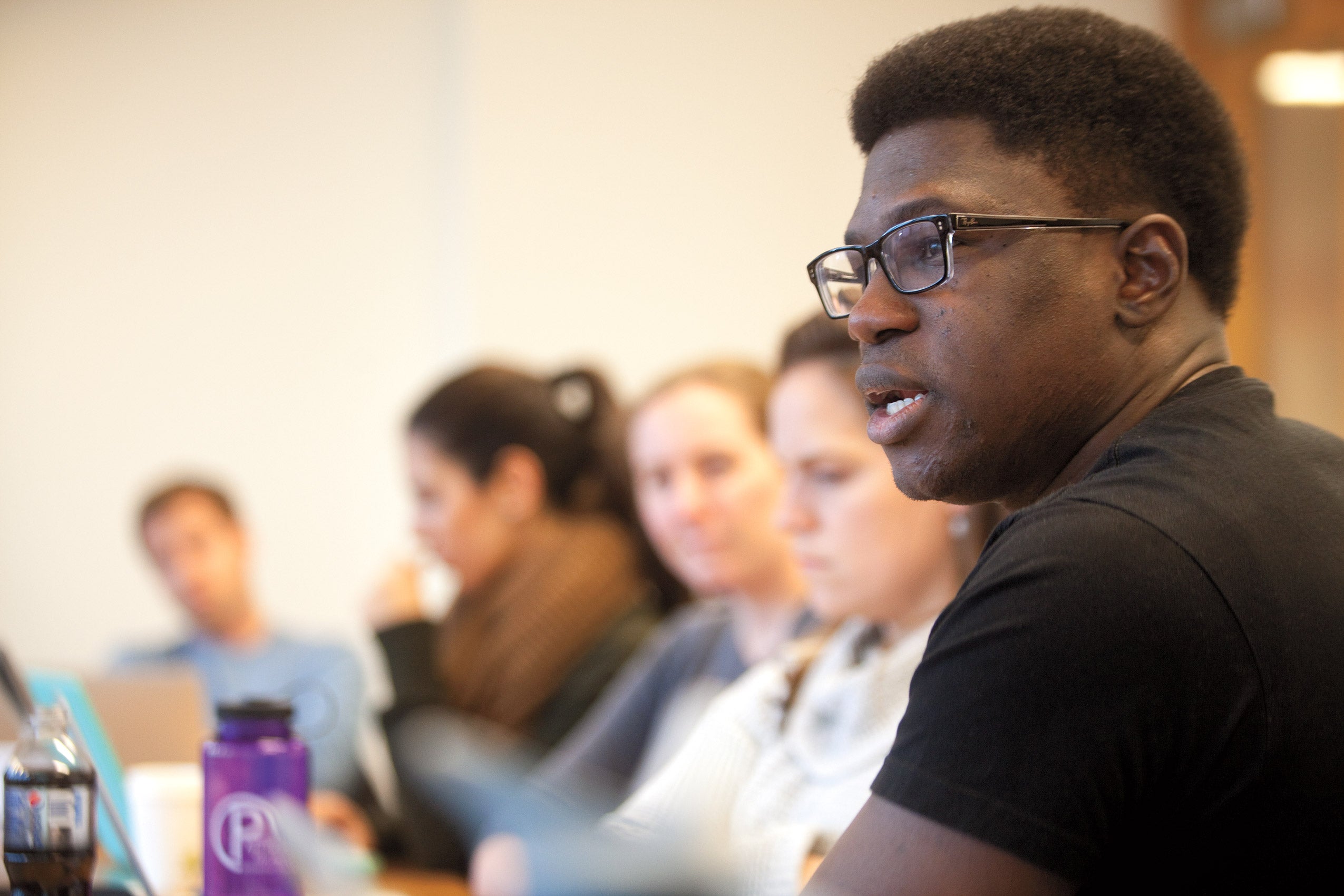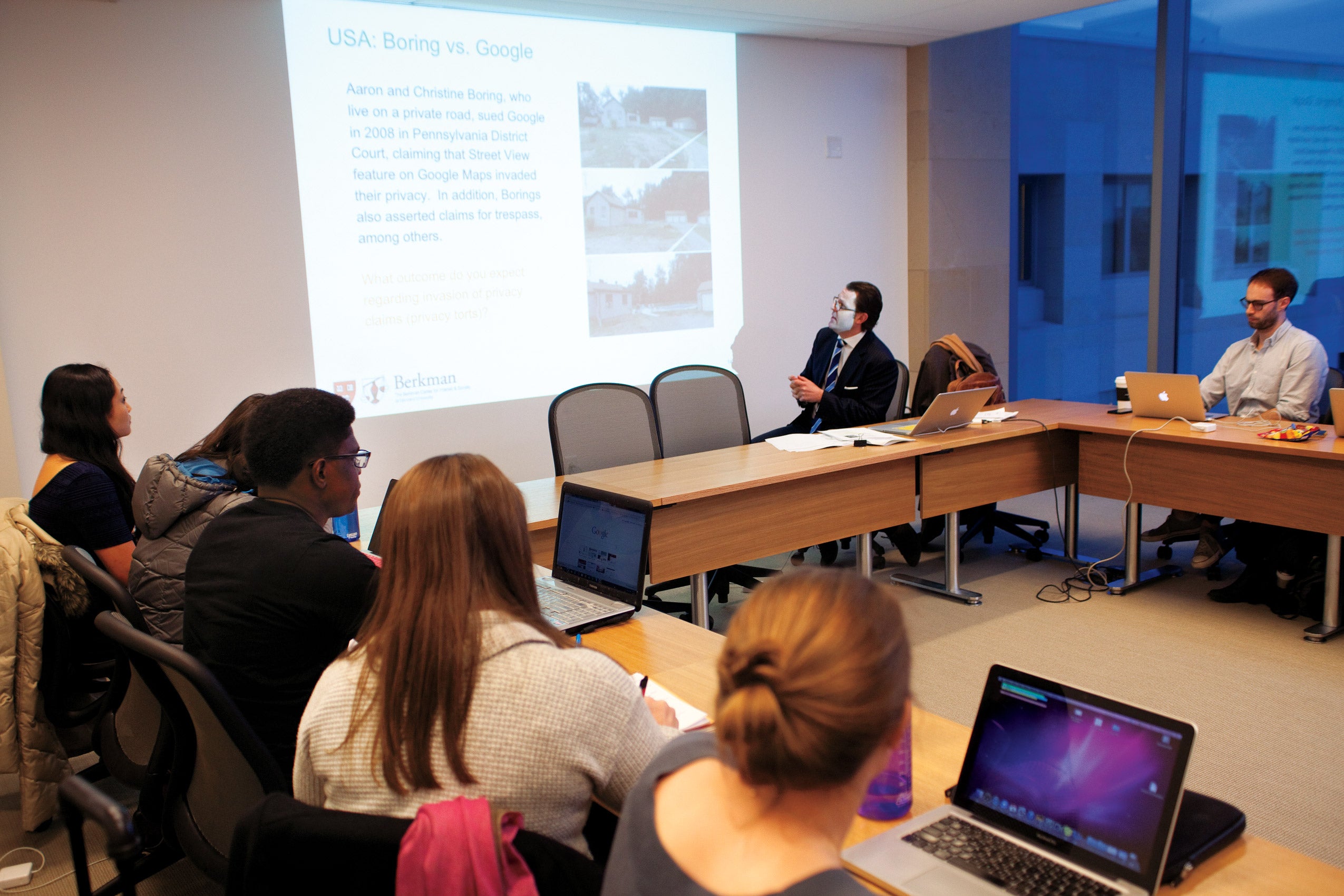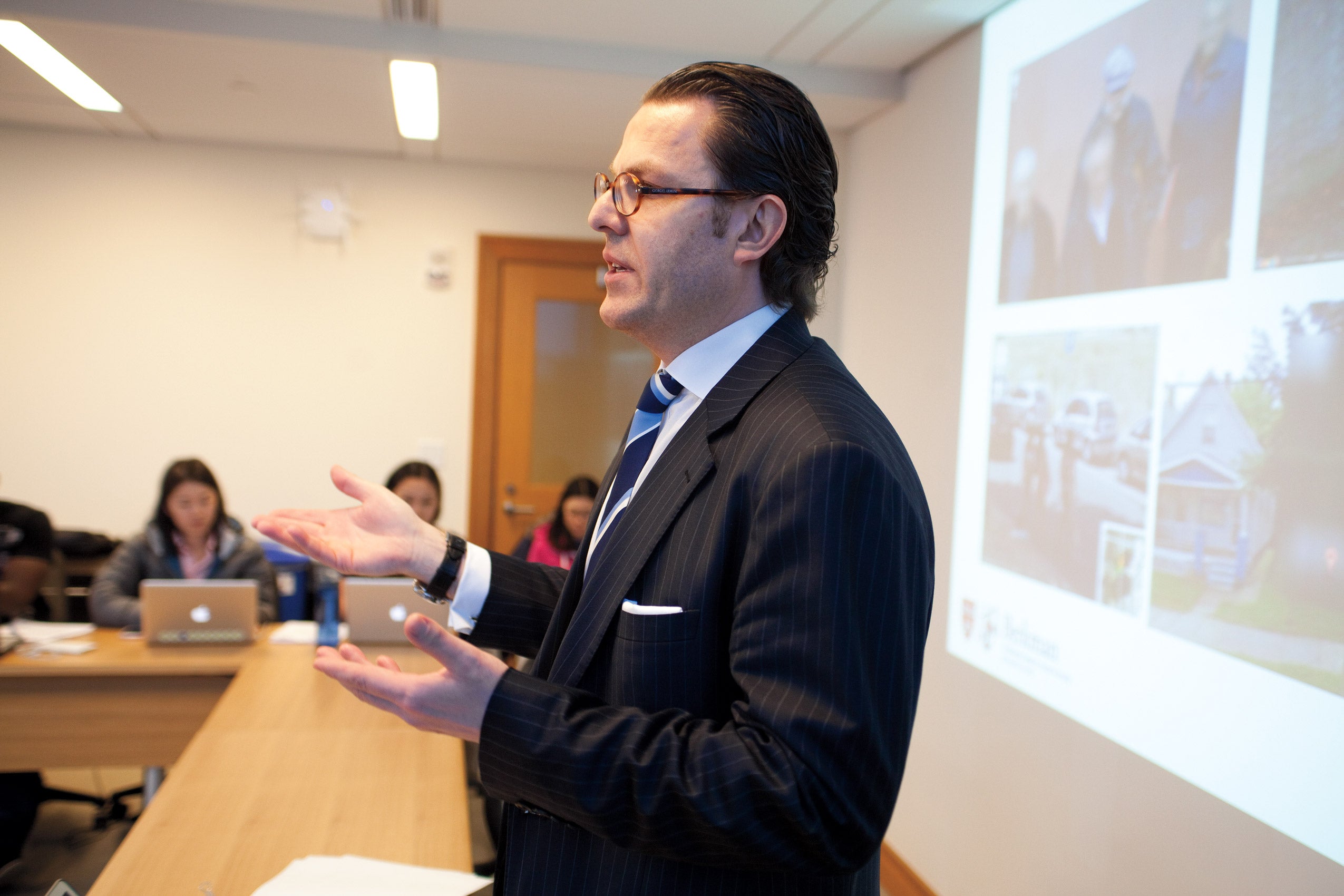As Professor of Practice Urs Gasser LL.M. ’03 sets up his PowerPoint and students deploy their notebooks and laptops, a riff of music drifts by. The tune soon reveals itself as a jazz version of the Beatles classic “Here, There and Everywhere”—a title that’s evocative of the global subject covered in this seminar, Comparative Online Privacy.
Gasser stops the music. He typically starts class by tossing out a “proposition” for discussion. Past classes have explored “You have zero privacy anyway. Get over it”; “The Internet calls for a global digital privacy treaty”; and “Privacy in the online world should be seen as an independent right that deserves legal protection in itself.” Today’s proposition asserts: “Privacy is a generic process that occurs in all cultures.”

Feola Odeyemi ’16 speaks up. Using his native country as an example, he says that unlike their government, the Nigerian people don’t seem especially concerned about online privacy. “People don’t appreciate what a company like Google might gain from the data they collect,” he says, whereas the benefits that Google can provide are much more apparent. Concepts of privacy, he argues, vary “from culture to culture.”
“Your response nicely aligns with a position that sees privacy as both context- and culture-specific,” Gasser tells Odeyemi. “If you look at privacy as process, it is more likely that you see it as a negotiation between self and society around you.”
With that stage set, Gasser invites his students to compare three different countries’ responses to Google Street View to draw lessons about the impact of culture and of various enforcement models.

The Google program makes street-level views of neighborhoods around the world freely available on the Internet, and in Japan, lawyers and professors objected because it was possible to see inside homes and buildings. After engaging in the typically nonconfrontational style of Japanese problem-solving, Google simply agreed to lower the height of the cameras on its Street View vehicles and then reshot all the photos it had taken in Japan.
In Switzerland, by contrast, a centralized government agency took up the cause in response to citizen complaints. The agency negotiated with and eventually sued Google for insufficiently using blurring technology to preserve privacy. As the matter wended its way through the courts, Google tried to rally public opinion by threatening what the company claimed would be an economically detrimental shutdown of Street View in Switzerland. Ultimately, Google yielded and implemented the privacy protections ordered by the Swiss Federal Supreme Court.

Meanwhile, in the United States, it was Aaron and Christine Boring, ordinary citizens, who sued Google in federal court for posting a photo of their home on Street View. In the absence of statutory protection, the Borings relied on the torts of intrusion upon seclusion and trespass. The 3rd Circuit found Google liable for the latter, but not the former, and ordered the Internet giant to pay the Borings $1 in damages. Adding insult to injury, the Borings were treated to the Streisand Effect, so named after the celebrity sued a photographer for posting pictures of her Malibu estate on the Internet. The lawsuit generated publicity that attracted hundreds of thousands of views of the photos, which had been languishing in obscurity.
Comparative Online Privacy is navigating an emerging field, and for students like Natalie Kim ’15, that makes it especially compelling. “The urgency of it and the currentness of the issues are really exciting to me,” she says.
That newness also invites a spirit of pedagogical exploration. “The topic does not lend itself to some sort of comprehensive overview or final description of the state of the knowledge because the knowledge is still in the making,” Gasser says. He wants his students to join him in developing a type of navigation aid or GPS system for approaching the issues. The seminar, therefore, is highly interactive. “Often there are no final answers, so the emphasis needs to be more on learning together and defining together how we best think about the issues,” he says.
Gasser’s reading list reflects his subject’s novelty. “It’s a bit challenging to put together a curriculum in this area,” says his teaching assistant, Lauren Henry ’14. Along with court opinions and law review articles, Gasser assigns FCC and FTC case memoranda, European Commission reports, technology blog entries, and newspaper stories.

The course’s 21 students include a former Facebook employee, a Harvard Medical School student, several LL.M.s from Europe (where Gasser was educated) and a few students with professional experience dealing with privacy issues. Guest speakers address topics like generational attitudes toward privacy, emerging privacy-protecting algorithms and how behavioral science can inform privacy law.
Gasser says his course teaches law students how to approach big societal questions. “Privacy in this online environment is a good placeholder for many other areas of law, areas that have either an international dimension or some cross-disciplinary component,” he says. “I think that the exploratory, almost playful approach that we apply in Comparative Online Privacy is helpful for other conversations, too.”
